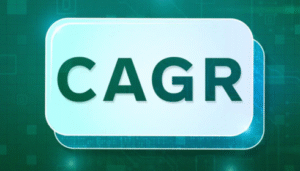1. How do I budget with irregular income?
Answer: To budget with irregular income, set a baseline monthly budget based on your average income from the past few months. Plan to save 20-30% of each payment for taxes and expenses. You may want to estimate conservatively as you determine how to get your essentials and aim to leave room for when it gets lean.
2. How much money should I set aside for taxes?
Response: According to most experts, freelancers should calculate 25-30% of all their earnings to be put into a ‘tax’. This might change according to your tax bracket, location, and business expenses. So, please refer to your tax professional to gauge a better percentage.
3. How should I invoice my clients?
Answer: Use clear, professional invoices with a detailed breakdown of services provided, payment terms, and due dates. Tools like FreshBooks, QuickBooks, or even a simple template can help streamline the process. Make sure to specify late fees if needed.
4. How can I maintain a steady cash flow?
Answer: To maintain cash flow, aim for multiple income streams, bill promptly, and consider working with retainers or long-term contracts. Establish a financial cushion by saving consistently, which helps during periods with fewer projects.
5. What if a client doesn’t pay on time?
Answer: First of all, send a polite reminder e-mail. The second time when the money hasn’t arrived yet, you send a firm reminder describing the consequences of non-payment. If they agreed to pay late fees, apply them. In extreme cases you should refer your case to a collection agency or even court procedures. This is a last resort.
6. How do I handle savings as a freelancer?
Answer: Save for an emergency fund that can absorb 3-6 months of living expenses. Contribute to tax-deferred accounts, like an IRA or a SEP-IRA, for long-term goals, such as retirement.
7. Should I open a separate account for my freelance income?
Answer: Yeah, it’s a good idea to keep personal and business finances separate. A business account makes it easier for you to track income, expenses, and taxes. Notably, come tax time, it also makes things a lot simpler.
8. How can I plan for retirement as a freelancer?
Answer: The responsibility of retirement savings lies with the freelancer. Create an individual retirement account (IRA) or a Simplified Employee Pension (SEP) IRA. Contribute in small amounts regularly for compound growth over time.
9. How will I plan my income when it fluctuates during slow months?
Answer: Use your emergency fund or previous savings during slow months to sustain your lifestyle. In addition, maintain a leaner budget during busy months so that you have some reserves during quieter times. You can also look into other sources of income or diversify your client base to avoid large dips.
10. How do I track my income and expenses?
Answer: Use accounting software like QuickBooks or Wave, or a spreadsheet to track both income and expenses. Categorize expenses (e.g., software, marketing, office supplies) to make it easier during tax time. Keep receipts and records organized, either digitally or physically.
Managing freelance income requires planning, discipline, and sometimes a little flexibility. These strategies help build financial stability and ensure you can weather the ups and downs that come with freelancing.










Alright folks, 80gamesvip showed promise. The VIP aspect is kinda cool, but the game selection needs a bit more oomph. Still, worth checking out if you’re looking for something a bit different. You can find it at 80gamesvip.